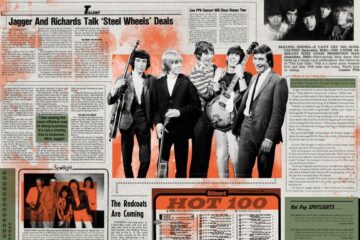News When John Lennon called-out George Harrison’s declining career: “George is out for the moment”
It’s a story that’s been played out time and time again. A group of friends take a shot at the big time. They start a band and make it, spend a few years at the very top, at first navigating the limelight before all that pressure gets too much. Professional and personal relationships clash, and in the end, both collapse. Oasis, The Smiths, Simon and Garfunkel, the list goes on. Maybe the saddest amongst them, though, is The Beatles and the way John Lennon, especially, turned on his oldest friends.
Luckily, just before Lennon was killed in 1980, the Liverpudlian boys managed to reconcile, but it was a close call. After the messy and drawn-out breakdown of the band, crumbling under the weight of drugs, personal arguments and musical disagreements from around 1968, the final dissolving of the group in 1969 felt like a relief. In documentary footage, you can see George Harrison near-enough sprinting to sign the closing documents as he was especially keen to be free from the shackles of the group and launch his solo project.
For Harrison, the group had started to feel smothering. He felt like nothing but a backing musician to Lennon and McCartney. Bob Dylan summed it up nicely when he said, “George got stuck with being the Beatle that had to fight to get songs on records because of Lennon and McCartney. Well, who wouldn’t get stuck? If George had had his own group and was writing his own songs back then, he’d have been probably just as big as anybody.”
So it makes sense that the guitarist was the first to pull the trigger on a solo career, releasing the beloved record All Things Must Pass in 1970. Pretty soon after, the rest of the band all started their own individual projects as they went their separate ways.
It would have been nice to be nice. It would have been lovely if the old friends could have kept their comradery or even just a level of respect for one another. But instead, Lennon, in particular, was set about delivering blows, slagging off his ex-bandmates’ work.
In 1975, Lennon handed out a savage judgement as he deemed Harrison “Out”. In a conversation about the flippancy of public favour, he said, “The public, including the media, are sometimes a bit sheeplike and if the ball starts rolling, well, it’s just that somebody’s in, somebody’s out.” But while that would be a totally fine and noble comment, his additional mention of the guitarist feels unnecessary and underhanded as he added, “George is out for the moment. And I think it didn’t matter what he did on tour.”
Anyone with a sibling will know this kind of comment well. It’s that little dig you can’t help but tag on the end, cutting down a younger brother or sister at any chance you can, as if it’s wired into your brain to do so. That’s how Lennon himself even saw it, viewing himself as a kind of guardian or guide to his old bandmate.
“George’s relationship with me was one of young follower and older guy,” he told Playboy. “He’s three or four years younger than me. It’s a love/hate relationship, and I think George still bears resentment toward me for being a daddy who left home.” It seemed that Lennon wanted more credit for his impact on the guitarist as he discussed Harrison’s book, I, Me, Mine, and the lack of mentions of him. To Lennon, the biography “says that my influence on his life is absolutely zilch and nil.”
However, this is exactly the attitude that made the band so unworkable for Harrison. As Lennon seems to demand credit for being a teacher, guide and major inspiration to his friend, it feels like an erasing of the guitarist’s own skill and clear talent. As he often felt overlooked or undervalued in the group, Lennon’s comments after the split probably only served as affirmation that the end of The Beatles was for the best.




